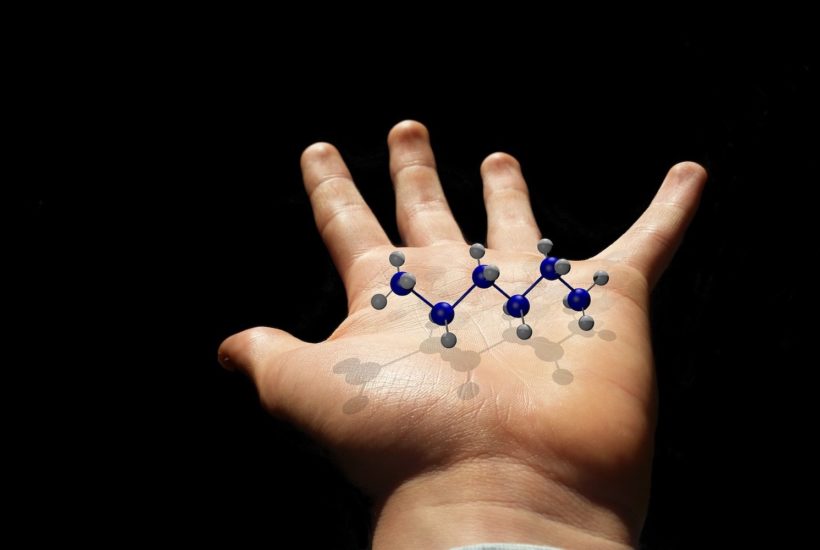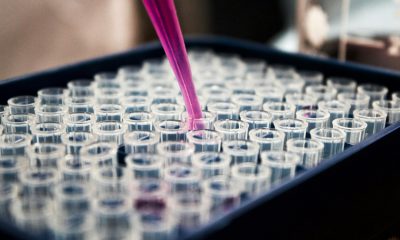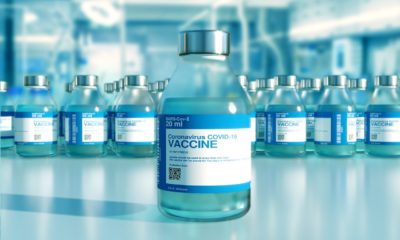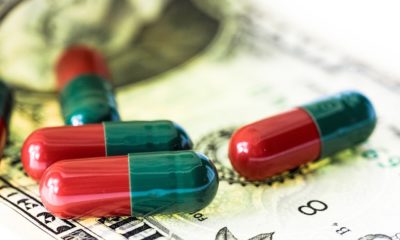Biotech
Hemarina offers its oxygen carrier molecule to fight the COVID-19 pandemic
Hemarina, a French biotech company, could come to the help of doctors fighting the coronavirus. The company has developed a molecule derived from marine worms, which could help people seriously affected by the COVID-19, who do not have access to respirators. The molecule called M101, binds 40 times more oxygen than human hemoglobin, and thus could be helpful for people with respiratory problems.

The Breton biotech company, Hermarina, said it is ready to make available a molecule whose action promotes tissue oxygenation to fight against serious forms of Covid-19.
“There is an urgent need to unblock the administrative authorizations. We have products that are clinically tested, we must be able to move forward and meet the demands of hospital doctors,” stated Dr. Franck Zal, the founder of Hemarina.
The biotech company is ready to manufacture 5,000 doses of existing products available to combat the most serious forms of Covid-19, particularly respiratory insufficiency.
For more information about the latest biotech breakthroughs and discoveries, download for free our companion app Born2Invest. An inside house team of journalists is bringing the most important business headlines from around the world for you to be the first to find out the latest financial decisions and stock market information.
Hermarina’s molecule is derived from marine worms
The molecule developed by Hemarina, called M101, binds 40 times more oxygen than human hemoglobin. Derived from marine worms, this product has been tested for oxygenation applications in grafts.
It took nearly 20 years of experimental marine worm research to bring about the medical innovations developed by Hemarina. The origin of these advances? A specimen of a marine worm called the arenicola, present on the planet for 450 million years and whose hemoglobin has been 40 times more oxygenating than human hemoglobin.
The study of sea worm respiration conducted by Franck Zal made it possible to demonstrate that the arenicole (which only breathes at high tide) was able to stay in the water for a long time: more than 6 hours in apnea against 11 minutes, the record for a human, thanks to his super-oxygenating hemoglobin.
A clinical study was conducted in France
A clinical study, the results of which were published in the American Journal of Transplantation, was conducted in France on more than 60 patients for this indication. Prof. Laurent Lantieri, head of department at the Georges Pompidou Hospital, which used Hemarina’s product for a face transplant, is now urging the authorities to authorize clinical testing of the molecule in emergency situations related to Covid-19.
With overwhelmed intensive care units, the molecule developed by Hemarina could thus be indicated for patients who do not have access to respirators.
The biotech company also pointed out that this treatment would be technically simple to implement. Hemarina has 5,000 doses ready to be offered and can rapidly produce about 30,000 doses.
“The President of the Republic rightly said: ‘we are at war.’ Yes, we are entering a phase of war medicine. The doctors in the field on the front line are all aware of this and, in this case, the principle of measured risk and potential benefit in relation to the risks incurred must take precedence over an exacerbated precautionary principle that would result in counting the dead,” stressed Franck Zal, founder of Hemarina.
The biotech company hopes that its appeal will be heard and that its molecule can soon be tested in France, on patients suffering from COVID-19.
__
(Featured image by ColiN00B via Pixabay)
DISCLAIMER: This article was written by a third party contributor and does not reflect the opinion of Born2Invest, its management, staff or its associates. Please review our disclaimer for more information.
This article may include forward-looking statements. These forward-looking statements generally are identified by the words “believe,” “project,” “estimate,” “become,” “plan,” “will,” and similar expressions. These forward-looking statements involve known and unknown risks as well as uncertainties, including those discussed in the following cautionary statements and elsewhere in this article and on this site. Although the Company may believe that its expectations are based on reasonable assumptions, the actual results that the Company may achieve may differ materially from any forward-looking statements, which reflect the opinions of the management of the Company only as of the date hereof. Additionally, please make sure to read these important disclosures.
First published in INDUSTRIE Pharma, a third-party contributor translated and adapted the article from the original. In case of discrepancy, the original will prevail.
Although we made reasonable efforts to provide accurate translations, some parts may be incorrect. Born2Invest assumes no responsibility for errors, omissions or ambiguities in the translations provided on this website. Any person or entity relying on translated content does so at their own risk. Born2Invest is not responsible for losses caused by such reliance on the accuracy or reliability of translated information. If you wish to report an error or inaccuracy in the translation, we encourage you to contact us.

-

 Africa1 week ago
Africa1 week agoAir Algérie Expands African Partnerships
-

 Markets5 days ago
Markets5 days agoRising U.S. Debt and Growing Financial Risks
-

 Business2 weeks ago
Business2 weeks agoDow Jones Near Record Highs Amid Bullish Momentum and Bearish Long-Term Fears
-

 Africa2 days ago
Africa2 days agoCameroon’s Government Payment Delays Exceed 200 Days, Straining Businesses and Public Finances

























